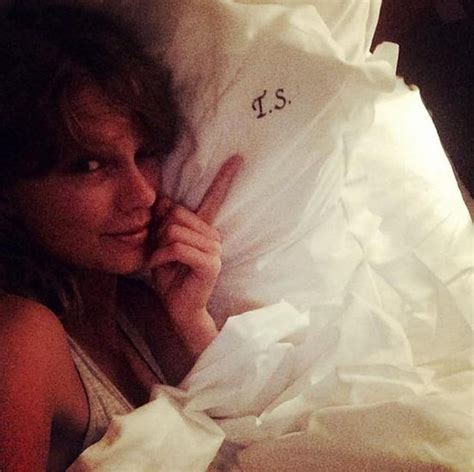Doja Cat Nude Leaked: What Really Happened?
In the era of digital media, where celebrities’ lives are under constant scrutiny, the internet erupted in a frenzy over rumors of a “Doja Cat nude leak.” This incident not only sparked widespread speculation but also raised critical questions about privacy, consent, and the darker side of online culture. Below, we dissect the events, separate fact from fiction, and explore the broader implications of such controversies.
The Spark: How the Rumor Began
The rumor mill began churning in late 2023 when unverified images allegedly of Doja Cat surfaced on social media platforms like Twitter and Reddit. Within hours, the hashtag #DojaCatLeak trended globally, fueled by a mix of genuine curiosity and opportunistic trolling. The images, of questionable authenticity, were quickly amplified by bots and sensationalist accounts, creating a digital wildfire.
The Reality: Debunking the Claims
Doja Cat herself addressed the rumors in a series of candid tweets, denying the authenticity of the images and condemning the invasion of her privacy. Her team further clarified that legal action would be pursued against those responsible for disseminating the fabricated content.
"I won’t let this define me. But it’s a reminder of how easily someone’s life can be disrupted by lies," Doja Cat stated, emphasizing the emotional toll of such incidents.
The Anatomy of a Digital Hoax
To understand how such rumors gain traction, it’s essential to examine the mechanics behind them:
- Deepfake Technology: Advances in AI have made it increasingly easy to create convincing fake images and videos. According to a 2023 report by Deeptrace, deepfake content online grew by 900% in the past two years.
- Social Media Algorithms: Platforms like Twitter and Instagram prioritize engagement, often amplifying sensational or controversial content without verifying its authenticity.
- Online Harassment Culture: Celebrities, particularly women, are frequent targets of coordinated harassment campaigns. A study by the Center for Strategic and International Studies found that 70% of online harassment victims are women.
- Creation: Fake images are generated using AI tools or Photoshop.
- Dissemination: Anonymous accounts share the content, often with misleading captions.
- Amplification: Bots and trolls repost the content, pushing it into trending topics.
- Consequence: The celebrity faces public scrutiny, emotional distress, and potential reputational damage.
The Broader Implications
The Doja Cat incident is not an isolated case. It reflects systemic issues in how society treats public figures, particularly women of color. Here’s a comparative analysis of similar incidents:
| Celebrity | Incident | Outcome |
|---|---|---|
| Doja Cat | Fake nude leak | Public denial, legal threats |
| Taylor Swift | Deepfake videos | Increased advocacy for anti-deepfake legislation |
| Beyoncé | Photoshopped images | Minimal public response, focus on privacy |
- Pro: Addressing rumors directly can debunk misinformation and reclaim narrative control.
- Con: Engaging with trolls can inadvertently amplify the controversy.
The Role of Legislation and Platforms
As deepfakes and privacy violations become more prevalent, lawmakers and tech companies are under pressure to act. In 2022, the U.S. introduced the DEEP FAKE Accountability Act, aiming to criminalize the creation and distribution of non-consensual synthetic media. However, enforcement remains challenging.
Protecting Yourself in the Digital Age
For both celebrities and ordinary individuals, safeguarding privacy is paramount. Here are actionable steps:
- Enable Two-Factor Authentication: Adds an extra layer of security to your accounts.
- Be Wary of Phishing Attempts: Never share personal information with unverified sources.
- Regularly Update Privacy Settings: Limit who can access your data on social media.
- Use Reverse Image Search: Verify the authenticity of suspicious images.
FAQs
Was the Doja Cat nude leak real?
+No, the images were fake, likely created using deepfake technology or Photoshop. Doja Cat has publicly denied their authenticity.
What legal actions can be taken against deepfake creators?
+Depending on the jurisdiction, creators can face charges for defamation, harassment, or violation of privacy laws. Some countries have specific anti-deepfake legislation.
How can I protect myself from deepfakes?
+Be cautious about sharing personal images, use secure platforms, and advocate for stronger privacy laws.
What role do social media platforms play in combating deepfakes?
+Platforms can invest in AI detection tools, enforce stricter content policies, and cooperate with law enforcement to remove harmful content.
Conclusion: A Call for Digital Empathy
The Doja Cat nude leak scandal serves as a stark reminder of the challenges posed by technology and online culture. While the incident was ultimately a hoax, its impact on the artist and the broader conversation about privacy cannot be understated. As we navigate this digital age, it’s crucial to approach such controversies with empathy, critical thinking, and a commitment to protecting individual rights.



